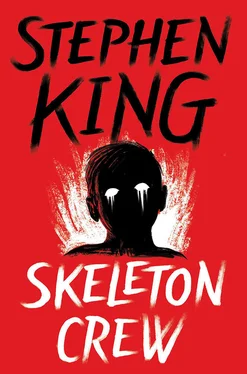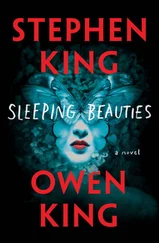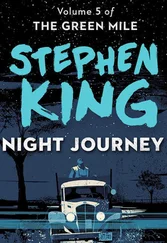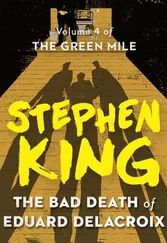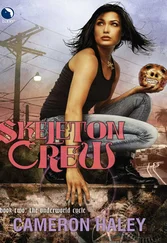Stephen King - Skeleton Crew
Здесь есть возможность читать онлайн «Stephen King - Skeleton Crew» весь текст электронной книги совершенно бесплатно (целиком полную версию без сокращений). В некоторых случаях можно слушать аудио, скачать через торрент в формате fb2 и присутствует краткое содержание. Город: New York, Год выпуска: 2016, ISBN: 2016, Издательство: Scribner, Жанр: Ужасы и Мистика, на английском языке. Описание произведения, (предисловие) а так же отзывы посетителей доступны на портале библиотеки ЛибКат.
- Название:Skeleton Crew
- Автор:
- Издательство:Scribner
- Жанр:
- Год:2016
- Город:New York
- ISBN:978-1-5011-4130-0
- Рейтинг книги:3 / 5. Голосов: 1
-
Избранное:Добавить в избранное
- Отзывы:
-
Ваша оценка:
- 60
- 1
- 2
- 3
- 4
- 5
Skeleton Crew: краткое содержание, описание и аннотация
Предлагаем к чтению аннотацию, описание, краткое содержание или предисловие (зависит от того, что написал сам автор книги «Skeleton Crew»). Если вы не нашли необходимую информацию о книге — напишите в комментариях, мы постараемся отыскать её.
Skeleton Crew — читать онлайн бесплатно полную книгу (весь текст) целиком
Ниже представлен текст книги, разбитый по страницам. Система сохранения места последней прочитанной страницы, позволяет с удобством читать онлайн бесплатно книгу «Skeleton Crew», без необходимости каждый раз заново искать на чём Вы остановились. Поставьте закладку, и сможете в любой момент перейти на страницу, на которой закончили чтение.
Интервал:
Закладка:
McCutcheon had Billy Dodd hook his wrecker up to the Cresswell and drag it around so it faced the road. So he could look at it, he said, every time he went by, and know that when Dodd hooked up to it again and dragged it away for good, it would be so that the construction men could come and dig him a cellar-hole. He was something of a sentimentalist, but he was not a man to let sentiment stand in the way of making a dollar. When a pulper named Baker came by a year later and offered to buy the Cresswell’s wheels, tires and all, because they were the right size to fit his rig, McCutcheon took the man’s twenty dollars like a flash. This was a man, remember, who was then worth a million dollars. He also told Baker to block the truck up aright smart. He said he didn’t want to go past it and see it sitting in the field hip-deep in hay and timothy and goldenrod, like some old derelict. Baker did it. A year later the Cresswell rolled off the blocks and crushed McCutcheon to death. The old-timers told the story with relish, always ending by saying that they hoped old Georgie McCutcheon had enjoyed the twenty dollars he got for those wheels.
I grew up in Castle Rock. By the time I was born my father had worked for Schenck and McCutcheon almost ten years, and the truck, which had become Uncle Otto’s along with everything else McCutcheon owned, was a landmark in my life. My mother shopped at Warren’s in Bridgton, and the Black Henry Road was the way you got there. So every time we went, there was the truck, standing in that field with the White Mountains behind it. It was no longer blocked up — Uncle Otto said that one accident was enough — but just the thought of what had happened was enough to give a small boy in knee-pants a shiver.
It was there in the summer; in the fall with oak and elm trees blazing on the three edges of the field like torches; in the winter with drifts sometimes all the way up and over its bug-eyed headlights, so that it looked like a mastodon struggling in white quicksand; in the spring, when the field was a quagmire of March-mud and you wondered that it just didn’t sink into the earth. If not for the underlying backbone of good Maine rock, it might well have done just that. Through all the seasons and years, it was there.
I was even in it, once. My father pulled over to the side of the road one day when we were on our way to the Fryeburg Fair, took me by the hand and led me out to the field. That would have been 1960 or 1961, I suppose. I was frightened of the truck. I had heard the stories of how it had slithered forward and crushed my uncle’s partner. I had heard these tales in the barbershop, sitting quiet as a mouse behind a Life magazine I couldn’t read, listening to the men talk about how he had been crushed, and about how they hoped old Georgie had enjoyed his twenty dollars for those wheels. One of them — it might have been Billy Dodd, crazy Frank’s father — said McCutcheon had looked like “a pumpkin that got squot by a tractor wheel.” That haunted my thoughts for months… but my father, of course, had no idea of that.
My father just thought I might like to sit in the cab of that old truck; he had seen the way I looked at it every time we passed, mistaking my dread for admiration, I suppose.
I remember the goldenrod, its bright yellow dulled by the October chill. I remember the gray taste of the air, a little bitter, a little sharp, and the silvery look of the dead grass. I remember the whisssht-whissht of our footfalls. But what I remember best is the truck looming up, getting bigger and bigger — the toothy snarl of its radiator, the bloody red of its paint, the bleary gaze of the windshield. I remember fear sweeping over me in a wave colder and grayer than the taste of the air as my father put his hands in my armpits and lifted me into the cab, saying, “Drive her to Portland, Quentin… go to her!” I remember the air sweeping past my face as I went up and up, and then its clean taste was replaced by the smells of ancient Diamond Gem Oil, cracked leather, mouse-droppings, and… I swear it… blood. I remember trying not to cry as my father stood grinning up at me, convinced he was giving me one hell of a thrill (and so he was, but not the way he thought). It came to me with perfect certainty that he would walk away then, or at least turn his back, and that the truck would just eat me — eat me alive. And what it spat out would look chewed and broken and… and sort of exploded. Like a pumpkin that got squot by a tractor wheel.
I began to cry and my father, who was the best of men, took me down and soothed me and carried me back to the car.
He carried me up in his arms, over his shoulder, and I looked at the receding truck, standing there in the field, its huge radiator looming, the dark round hole where the crank was supposed to go looking like a horridly misplaced eye socket, and I wanted to tell him I had smelled blood, and that’s why I had cried. I couldn’t think of a way to do it. I suppose he wouldn’t have believed me anyway.
As a five-year-old who still believed in Santy Claus and the Tooth Fairy and the Allamagoosalum, I also believed that the bad, scary feelings which swamped me when my father boosted me into the cab of the truck came from the truck. It took twenty-two years for me to decide it wasn’t the Cresswell that had murdered George McCutcheon; my Uncle Otto had done that.
The Cresswell was a landmark in my life, but it belonged to the whole area’s consciousness, as well. If you were giving someone directions on how to get from Bridgton to Castle Rock, you told them they’d know they were going right if they saw a big old red truck sitting off to the left in a hayfield three miles or so after the turn from 11. You often saw tourists parked on the soft shoulder (and sometimes they got stuck there, which was always good for a laugh), taking pictures of the White Mountains with Uncle Otto’s truck in the foreground for picturesque perspective — for a long time my father called the Cresswell “the Trinity Hill Memorial Tourist Truck,” but after a while he stopped. By then Uncle Otto’s obsession with it had gotten too strong for it to be funny.
So much for the provenance. Now for the secret.
That he killed McCutcheon is the one thing of which I am absolutely sure. “Squot him like a pumpkin,” the barbershop sages said. One of them added: “I bet he was down in front o’ that truck, prayin like one o’ them greaseball Ay-rabs prayin to Arlah. I can just pitcher him that way. They was tetched, y’know, t’both of them. Just lookit the way Otto Schenck ended up, if you don’t believe me. Right across the road in that little house he thought the town was gonna take for a school, and just as crazy as a shithouse rat.”
This was greeted with nods and wise looks, because by then they thought Uncle Otto was odd, all right — oh, ayuh! — but there wasn’t a one of the barbershop sages who considered that image — McCutcheon down on his knees in front of the truck “like one o’ them greaseball Ay-rabs prayin to Arlah” — suspicious as well as eccentric.
Gossip is always a hot item in a small town; people are condemned as thieves, adulterers, poachers, and cheats on the flimsiest evidence and the wildest deductions. Often, I think, the talk gets started out of no more than boredom. I think what keeps this from being actually nasty — which is how most novelists have depicted small towns, from Nathaniel Hawthorne to Grace Metalious — is that most party-line, grocery-store, and barbershop gossip is oddly naive — it is as if these people expect meanness and shallowness, will even invent it if it is not there, but that real and conscious evil may be beyond their conception, even when it floats right before their faces like a magic carpet from one o’ those greaseball Ay-rab fairy tales.
Читать дальшеИнтервал:
Закладка:
Похожие книги на «Skeleton Crew»
Представляем Вашему вниманию похожие книги на «Skeleton Crew» списком для выбора. Мы отобрали схожую по названию и смыслу литературу в надежде предоставить читателям больше вариантов отыскать новые, интересные, ещё непрочитанные произведения.
Обсуждение, отзывы о книге «Skeleton Crew» и просто собственные мнения читателей. Оставьте ваши комментарии, напишите, что Вы думаете о произведении, его смысле или главных героях. Укажите что конкретно понравилось, а что нет, и почему Вы так считаете.
